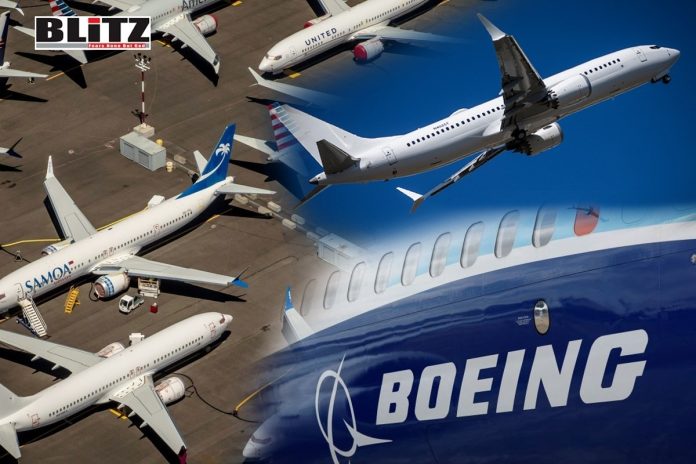In the tumultuous landscape of modern aviation, Boeing finds itself thrust into the spotlight, grappling with a series of crises and scandals that seem straight out of a Hollywood thriller. From harrowing midair incidents to alarming manufacturing defects, the aerospace giant is facing a pivotal moment in its history. Yet, within this turbulence lies an opportunity for Boeing to rewrite its narrative, forging a path towards renewed trust and excellence.
At the heart of Boeing’s ongoing struggles lies a complex cultural dilemma – an intricate interplay between tightness and looseness that deeply infiltrates every facet of the organization. While every company navigates its unique cultural landscape, Boeing’s shift away from a rigorously controlled atmosphere towards one marked by greater flexibility has posed significant challenges, especially within an industry where exactitude and safety reign supreme. This departure from established norms has rendered the company vulnerable to a myriad of pitfalls, underscoring the critical importance of cultural alignment in achieving sustained success and resilience.
The recent scathing review of Boeing’s corporate culture by the Federal Aviation Administration served as a stark reminder of the urgent need for change. With more than 50 safety-related changes mandated within a tight 90-day window, Boeing faces an uphill battle in realigning its cultural compass. The solution lies in a fundamental cultural shift-a return to a tighter organizational ethos that places utmost importance on accountability, stability, and, above all, safety.
Delving into the intricacies of Boeing’s cultural deterioration exposes a myriad of underlying factors. Chief among these is the organization’s shifting focus towards prioritizing profit margins over upholding engineering integrity. Key strategic maneuvers, including the relocation of headquarters and the outsourcing of production, have inadvertently cultivated a detachment among stakeholders, hindering seamless communication channels and diluting the shared sense of accountability. This shift in priorities has not only eroded the company’s foundational values but has also underscored the importance of reestablishing a cohesive cultural framework centered around transparency and excellence.
Moreover, the ongoing flux in leadership at Boeing has further amplified the organization’s cultural decline. The continuous turnover of CEOs has perpetuated a narrow concentration on immediate profits rather than sustained strategic foresight. The consequence has been the cultivation of a culture marred by uncertainty, stagnation, and a troubling erosion of fundamental principles.
To successfully traverse these challenging circumstances, Boeing must undertake a thorough process of self-reflection and evolution. Embracing the SECURE model-comprising Setting clear expectations, Establishing structure, Centralizing decision-making, Upholding oversight, and Enforcing rules-can provide a robust framework to guide Boeing towards cultural equilibrium. This comprehensive approach promises to instill clarity, coherence, and accountability within the organization, facilitating its journey towards renewed stability and excellence.
At the heart of this recalibration lies a resolute commitment to safety-a commitment that must permeate every facet of the organization, from top-tier executives to factory floor workers. This entails not only internal reforms but also fostering a culture of transparency and accountability among external partners and suppliers. Indeed, safety knows no boundaries and demands unwavering vigilance from all stakeholders.
It is imperative for Boeing to dismantle the pervasive culture of fear and retaliation that has permeated its workforce, stifling dissent and inhibiting vital feedback mechanisms. Employees must feel empowered to express concerns without apprehension of retaliation, with the guarantee that their efforts towards enhancing safety will be recognized and incentivized. This transformation is crucial for fostering a culture of openness, trust, and continuous improvement within the organization.
Rebuilding Boeing’s cultural foundation will require a concerted effort at all levels of the organization. From the boardroom to the factory floor, every individual must embrace a collective responsibility towards upholding safety as the paramount value. This necessitates a cultural shift from reactive firefighting to proactive risk mitigation-a journey that demands patience, perseverance, and unwavering commitment.
As Boeing navigates its path forward, it must remain acutely aware of the high stakes involved. Neglecting to confront its cultural challenges not only exposes the company to additional reputational harm but also places the safety and welfare of numerous passengers and crew members worldwide in jeopardy. The urgency for action cannot be overstated, and the journey towards redemption hinges on a resolute dedication to revitalizing the company’s culture and fostering a renewed commitment to organizational excellence. Now is the time for decisive steps towards cultural renewal to ensure a safer and more sustainable future for all stakeholders involved.
The present crisis facing Boeing presents a critical opportunity for introspection and change. Through adopting a stricter, more responsible culture focused on safety and integrity, Boeing has the chance to restore its reputation as a leader in aviation innovation and dependability. While the road ahead may pose challenges, the ultimate goal of a safer, stronger future makes the endeavor worthwhile.




